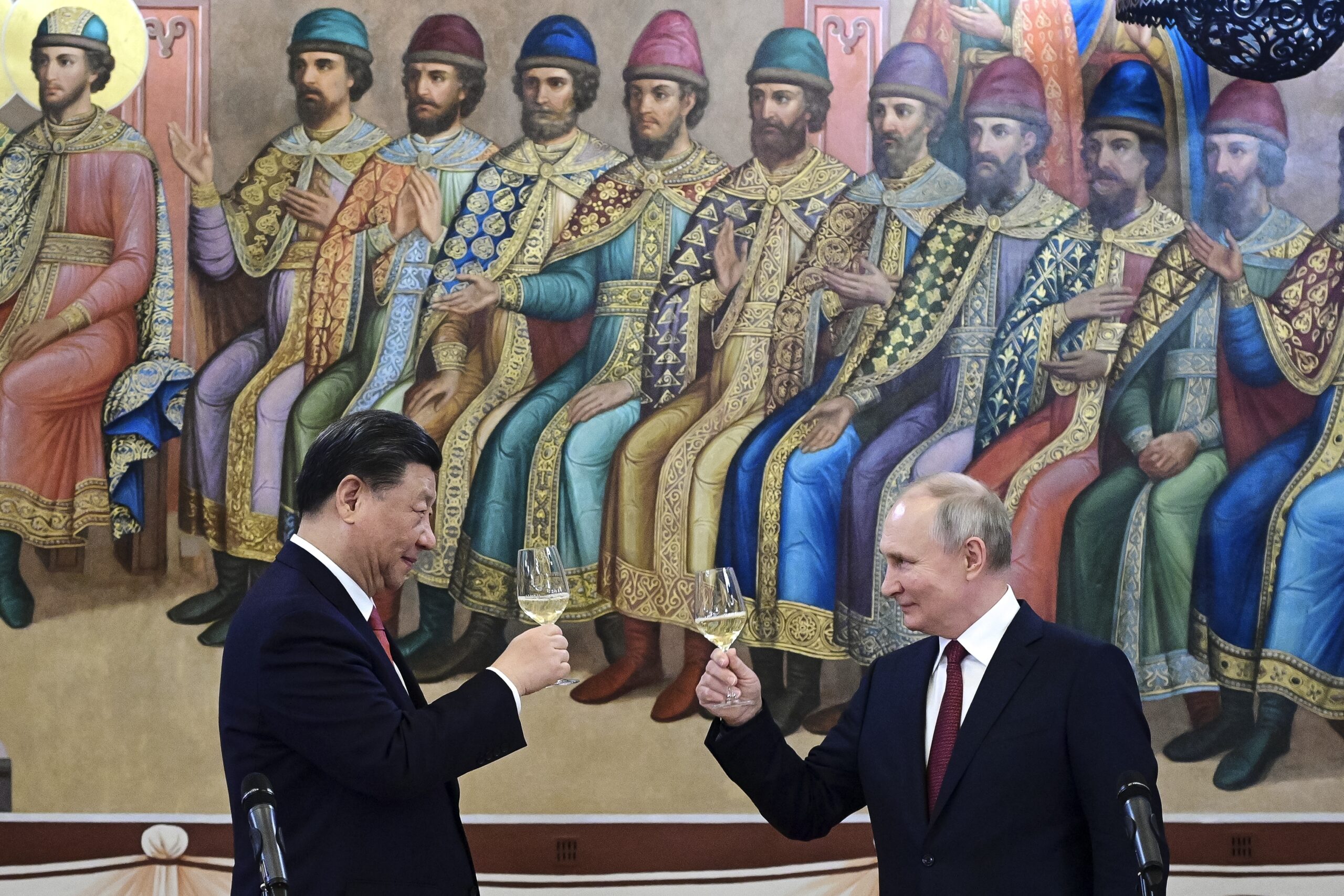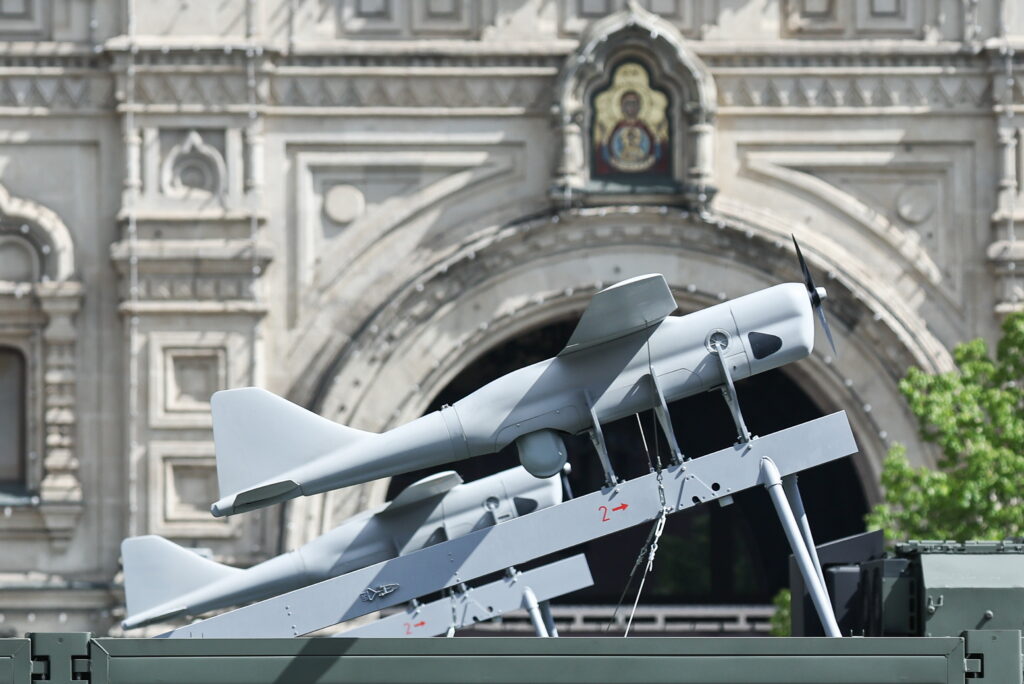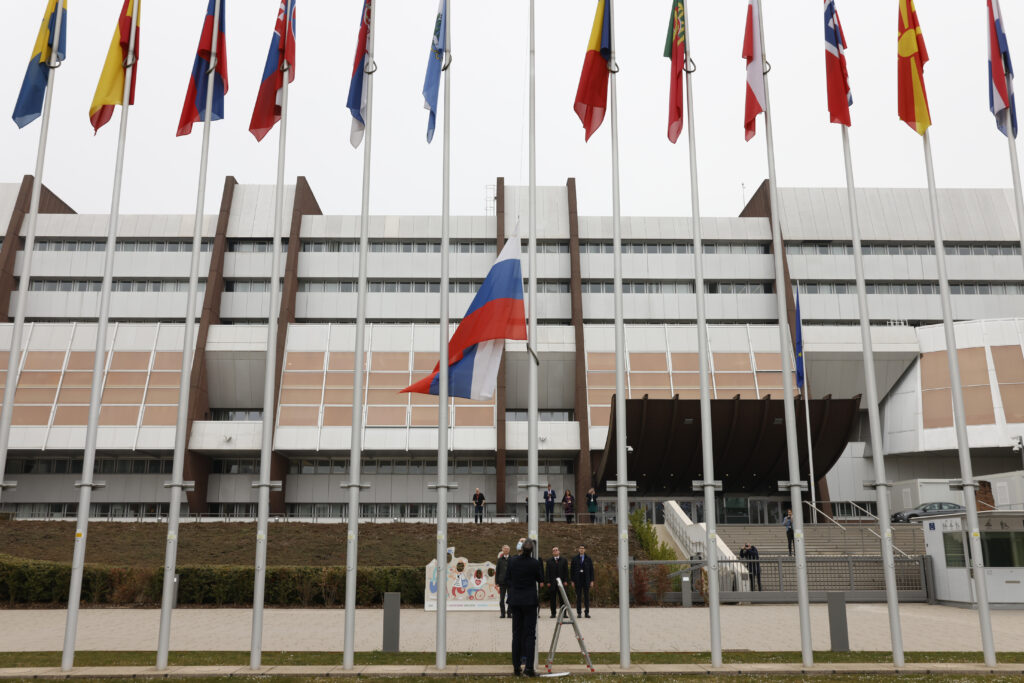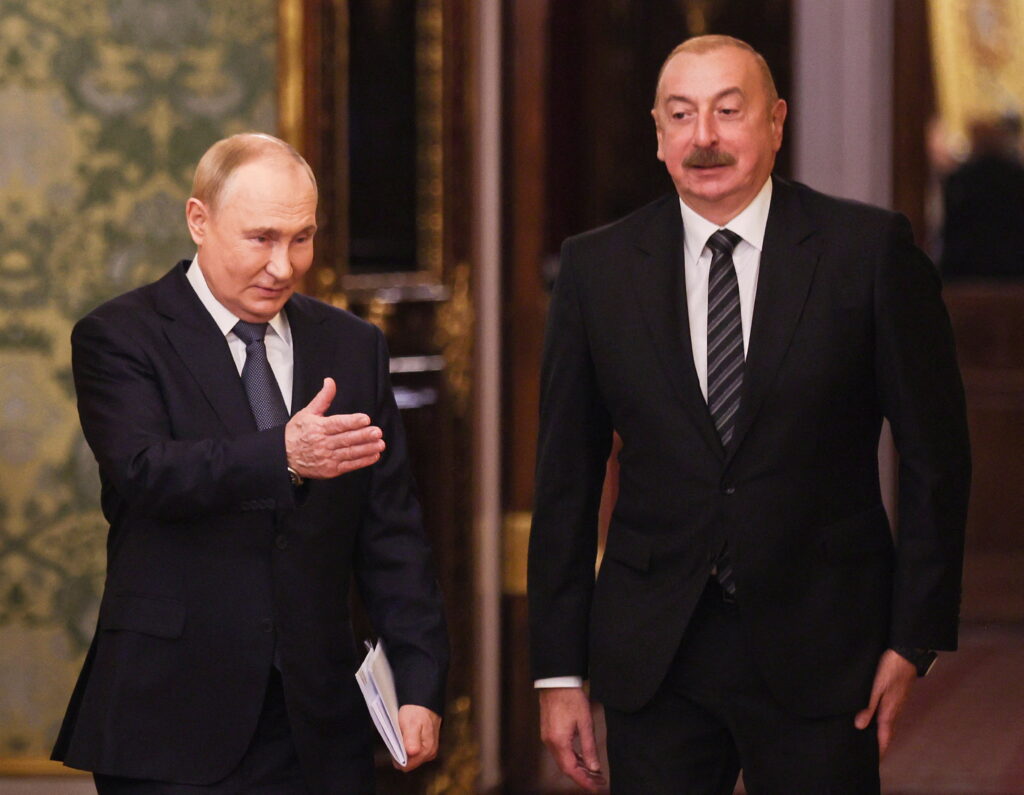As Russian and international experts continue to recapitulate the outcomes of Chinese leader Xi Jinping’s visit to Moscow, often promoting the view that Russia is falling into a vassal-like dependence on China, or spreading rumours of a strategic anti-Western alliance being formed between the two countries, I will attempt to offer a far less dramatic vision, claiming that no lasting union and no quasi-feudal relationship has been established or will ever develop between China and Russia. Most likely, whether now or in the future, things will boil down to an unequal economic partnership and occasional political cooperation, very far from a genuine alliance.
Many are now talking that China has become very important for the Russian economy since the outbreak of the war in Ukraine. These assertions are certainly well-founded. China’s share in Russia’s exports rose from 13.2% to 19.3% in 2022, and it is likely to continue growing throughout 2023, probably to 23−25%, against the backdrop of shrinking supplies to Europe. At the same time, imports from China continue to grow rapidly, both in volume and value. Over the past year, Chinese companies almost monopolised the Russian mobile telephone market and created a good foothold for dominance in the automotive industry. Quite likely, Chinese products will achieve a significant presence in the Russian aviation industry and rail transport in 2024−2027. Readers should also remember that the yuan (RMB) share of payments for Russian exports rose from 0.5% to more than 16% last year, and RMB became the most traded currency on the Moscow Exchange. Russian companies are beginning to make borrowings in RMB and the National Wealth Fund (NWF) is going to be replenished only in this currency from now on (however, the chance of this happening remains purely illusory as the NWF continues to dissipate quite quickly).
Meanwhile, I would not claim that all of the above can be viewed as evidence of an emergent economic vassalage. If we look at China’s neighbour, Japan, which holds 88.9% of its reserves in U.S. government bonds, pays for more than 86% of its exports in dollars and derives about 20% of its foreign trade transactions from the United States, this picture does not look like dependence. On the contrary, everyone remembers the times when Japan was a strong economic rival to America, not less formidable than China is today (or at least appears to be). The reliance of one economy on another is not determined by foreign trade but, instead, by investments and debt relations (last winter, we saw clearly how easily the Kremlin’s vision of Europe being ‘dependent’ on Russian energy was shattered). Nothing of the sort seems to be happening between Russia and China. Whereas China has invested more than USD 1 trillion in the Belt and Road countries over the last decade, only less than USD 13bn of that figure went to Russia, and the Russian corporations’ debts to Chinese investors have been paid off almost entirely with energy supplies. Of course, China can be a source of many nasties to Russia: from reducing its purchases of raw materials (a development that cannot be fully excluded since Beijing cut its total imports of all types of energy media last year, and quite substantially so in some areas) to the forthcoming restrictions on transit of imported freight, or ‘tightening the screws’ on the sales of high-tech products with Western ‘viscera’. However, the Asian giant is unable to change Russia’s strategic course (and this, by the way, appears to be the most important outcome of the Chinese leader’s visit to Moscow).
China may be very interested in creating a media background and political backdrop for Russia to demonstrate Moscow’s support for Beijing. However, one cannot but agree with Joe Biden, who noted just a few days ago that the multiple bilateral meetings between Putin and Xi, as well as the growing mutual trade between the two countries, should not be taken as evidence that a full-fledged alliance is emerging. It should also be borne in mind that the People’s Republic of China and the Russian Federation profess radically different ideologies and seek different goals. China, as a state and society, has benefited immensely from US-led globalisation, and the modern Chinese economy emerged and developed in its niches. For this reason, China is still striving, on the one hand, to preserve global economic trends and, on the other, to create a ‘non-American’ (non-US-centric) world.
A few years ago, the author of this article spoke of the emergence of two globalisation models that could shape the world in the 21st century. In one option, China is able to gather the countries of the global South around itself, attracting them with its industrial and financial capabilities. The U.S. and the EU may continue to dominate within the information- and network-based economy, promoting prestigious consumption and relying on the wide usage of their brands, institutions and social networks around the world. In contrast, Russia has gained hardly anything from globalisation as a country and society: it has enriched a small share of its citizens, most of whom have already left Russia, and the country’s infrastructure and industrial sector have long been in a disastrous condition. Thus, Russian leaders have been indifferent to developments in the world. They are hoping for the ‘collapse of the dollar’, the ‘disintegration of the EU’ and the rise of universal autarchy, seeking not to build an alternative to America, but to inflict the maximum possible damage on it, willing to suffer their own losses in the process. Therefore, China’s ‘non-American’ course and Russia’s anti-American stance can stay compatible only for a fairly short period in history. The West has reasons and foundations to improve its relations with China (indeed, confrontation with China is perceived by many American experts as irresponsible). In contrast, there is neither reason nor motivation to restore relations with Russia.
Xi Jinping’s visit to Moscow did not only fail to provide a new impetus to Russia-China relations, but also indicated that they had already hit a ceiling. Most likely, the Chinese continued to feel disillusioned with Putin and his team, observing their growing helplessness in Ukraine, obvious failures in import substitution and evident unwillingness to take the growing threats to the Russian economy into consideration. The Chinese leader vividly remembered the Russian president assuring him back in early February 2022 that Russia would not invade Ukraine, and he received no solid explanation from Moscow as to why the invasion had been undertaken. At the same time, Putin was also clearly disappointed (or, rather, felt offended) because China did not back Russia in the military sphere, did not agree to initial the Siberia-Power-2 documents immediately (they may be signed later this year, but in a rather low-profile manner) and, finally, brought up international law, respect for the sovereignty of all countries and peace too often in conversation. The meeting in Moscow did not turn into yet another reassurance of common ground for Russia and China. Instead, it became a boundary beyond which the non-American and anti-American strategies will eventually diverge.
Those who speculate that China is almost ready to ‘gobble Russia up’ are making the understandable (and yet unforgivable) mistake by overestimating the importance of economic factors in Kremlin’s policies. A few years ago, no one could have imagined that Putin would destroy the entire infrastructure of economic cooperation with Europe in order to gain control over a handful of regions and cities in southeastern Ukraine. No one would have dared to claim that even a fleeting rise in the price of the dollar to 120 roubles, the withdrawal of major foreign investors from Russia, the shutdown of entire industries and the panicked flight of a million people to other countries, as well as a budgetary deficit exceeding current revenues would have no effect on political stability and would not force the authorities to adjust their strategy. However, everyone should have learnt to take account of all these circumstances by now. Therefore, it is rather naïve to assume that China is capable of dictating any conditions to Russia that could be perceived as undermining Russia’s sovereignty. We are likely to see further promotion of the Chinese peace plan and attempts to persuade Putin to abandon his insane goals (though without much hope of success). However, I would not expect much more than that: the Kremlin has no intention of surrendering any sovereignty over its patrimony to China, and Putin’s respectful attitude towards Xi Jinping should not be interpreted as evidence of an emerging vassalage.
In fact, China has emerged as pretty much the main beneficiary of Putin’s war. Firstly, it was able to learn about the instruments that the West can use against countries that are too active in destroying the global order (it is no coincidence that the People’s Bank of China’s investments in U.S. government bonds fell by 17% last year, reaching their lowest in six years, and the proceeds were invested in gold). Secondly, Beijing has an opportunity to step up its economic expansion into Russia without much fear that its assets will share the fate of the requisitioned Western investments (the Kremlin will not enter into conflict over a few billion worth of investments against the background of at least a hundred billion worth of reserves placed in Chinese assets). Thirdly, Chinese companies will continue to expand their exports to Russia while simultaneously being able to dictate prices for the commodities supplied to Moscow — and this situation will only worsen as Russia becomes increasingly entangled in the war in Ukraine. Finally, the image of the Kremlin leader who has broken all rules of international law and is accused of war crimes will be in stark contrast with the image of Chinese leaders, who fully observe the rules of ‘decency’ and are willing to negotiate with the West.
The tonality of the Sino-Russian statements has changed dramatically over the past year: while in early February 2022 it was asserted that «the friendship between the two countries has no boundaries, and there are no forbidden zones in their mutual cooperation,» the claim made at the end of March 2023 reads: «the friendship between the two nations has a solid foundation, and the multi-faceted cooperation between the two states has very broad prospects.»










